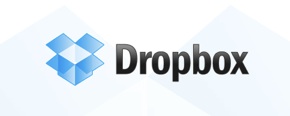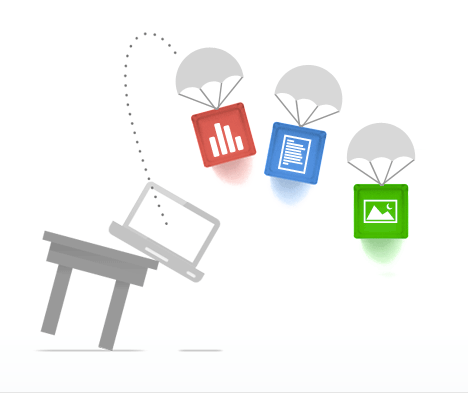Google finally launched its long-rumored Google Drive online storage service today. This was probably one of Google’s worst-kept secrets, so the launch itself wasn’t much of a surprise to anyone – least of all Dropbox, which – until today – was pretty much synonymous with online storage for documents.
If nothing else, Google Drive is a full-frontal assault on Dropbox on virtually every level. Google is not just massively undercutting Dropbox’s pricing scheme, but thanks to integrating Drive with Docs, it is also able to offer far more features. With this kind of competition, the future might not be so bright for Dropbox.
It’s not just Google, though. Just yesterday, Microsoft also launched its new SkyDrive apps, which also replicate Dropbox’s functionality and add more tools to it. Indeed, besides undercutting Dropbox’s pricing, the one area where Google and Microsoft are easily one-upping the popular startup is in the suite of tools they offer around their clones.
In other news, @Dropbox is launching a search engine. :)
— Drew Houston (@drewhouston) April 24, 2012
The question then is, what’s next for Dropbox? It was always pretty obvious that the big players wouldn’t just ignore this market and leave it to a few scrappy startups. Google’s and Microsoft’s marketing power and scale could easily overwhelm whatever momentum Dropbox had until now.
 To remain competitive, Dropbox will have to seriously cut its prices and improve its feature set at the same time. That’s a tough call for a relatively small company. While Google doesn’t really need to make money from selling storage, it’s those kind of services that make Dropbox and co. viable businesses.
To remain competitive, Dropbox will have to seriously cut its prices and improve its feature set at the same time. That’s a tough call for a relatively small company. While Google doesn’t really need to make money from selling storage, it’s those kind of services that make Dropbox and co. viable businesses.
As Posterous co-founder and YCombinator partner Garry Tan noted before the Google Drive launch, Dropbox may have an advantage over others by being platform agnostic – especially on mobile. Even there, though, times are changing. Google is obviously going to deeply integrate Drive into Android, but it will also launch an iOS app. Microsoft is going to bring SkyDrive to Windows Phone and iOS, too – though it’s still questionable if it will ever come to Android, too. Apple is the odd one out here, because it is so focused on its own ecosystem and because its iCloud offers a very different vision of what cloud storage should look like.
Dropbox may be platform agnostic, but the funny thing is, most of the big players don’t just cater to their own platforms anymore either.
As usual, Google’s (and Microsoft’s and Apple’s) competitors will say that this move validates their model and that they welcome a new competitor, but at the end of the day, Google’s entry is only making life tougher (too tough?) for Box, Dropbox and all the other cloud storage startups.
